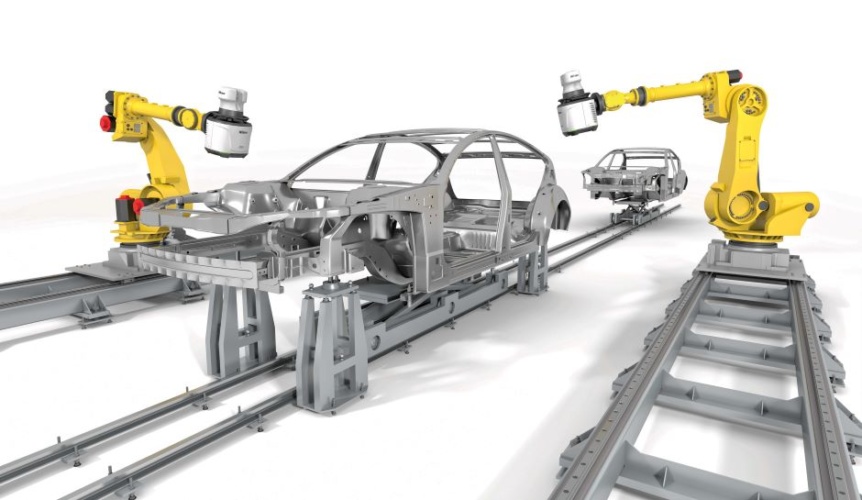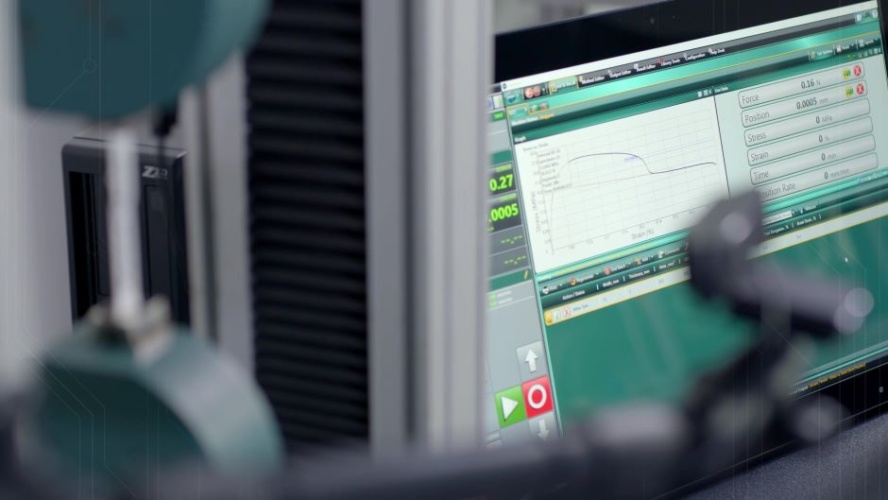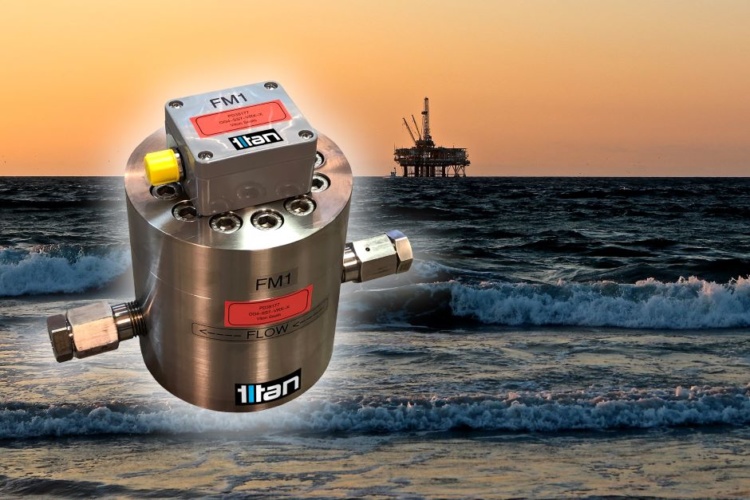Experts from Nikon Metrology, Titan Enterprises, Tinius Olsen and Buehler reveal the trends taking place in the diverse world of measurement and inspection.
If something can be built then it can be measured and inspected, often to standards that are vital for the safe and smooth running of a diverse range of enterprises.
Meet the Panel:
Paul Lightowler Global Product Manager, Nikon Metrology
Neil Hannay, Senior Development Engineer, Titan Enterprises
Martin Wheeler, Director of Sales and Business Development, Tinius Olsen
Dr. Evans Mogire, EMEA Technology and Laboratories Manager, Buehler
What industry sectors are you focusing on and what is driving this focus?
NH: Titan Enterprises supply small bore, liquid flow metering solutions to a diverse range of markets and applications. From healthcare and pharmaceuticals, chemical process plants and automotive fluid flow metering, to flow measurement in hazardous petrochemical refineries and beverage/beer dispensing in the hospitality sector. We develop custom flow solutions that work with customer-specific equipment and/or applications, meeting customer needs precisely. For instance, Titan’s high-pressure range of Oval Gear flow meters are typically built to order, and customers may request a change of materials, pressure ratings, electrical and port connections, and even dual pulsed output to enable reverse flow measurement.
PL: Our products cover a wide range of industry areas and applications, and Laser Radar is no exception. Currently, the main industry focus is on automotive, as it has been for several years now, as the sector is pushing towards higher quality products and fully automated inspection with efficiency and throughput being key factors in any technology they implement. Automotive currently is still an expanding market globally and drives innovation in a lot of other industry sectors such as aerospace and general manufacturing, so by association helps to expand those markets as well.
MW: The materials testing sector is increasingly focusing on lightweight high-strength solutions. In terms of raw materials we’re looking at lightweight alloys and metals which have low density and high strength-to-weight ratios, composites – in particular carbon fibre strengthened materials and structures – and insulation materials from electrical insulators used in batteries to insulation used in the construction industry. For components, devices and finished products we’re talking about auto components, medical devices, shape memory alloy formed devices (for example spectacles and heat sensitive switches), geotextiles, smart textiles and smart packaging enclosures.
EM: One is automotive due to its transformation towards green technologies and electric vehicle electrification. This has put emphasis on light weighting opportunities and on electric vehicle architecture. For electrification platforms, a key area relates to battery frame assembly, cell/bus bar assembly and related material types, cell lattice structure, associated electronic components, and the motive side involving electric motors. For these areas, there is an increased need to properly characterise the materials and associated manufacturing technologies, which involves metallurgical inspection and testing. The aerospace sector has also seen increased activities towards greener technologies similar to automotive.

What are those sectors asking of you and what solutions are you providing?
NH: For oil and gas applications where the presence of strongly acidic or basic chemicals must be considered, Titan offers a choice of construction materials across our Oval Gear flowmeter range. Adapting designs to meet specific high-pressure requirements and aid chemical compatibility, the use of non-magnetic materials and exotic metals, such as Hastelloy and Titanium, are examples of our growing bespoke flowmeter work. Our OEM customers often request specific liquid flow pressure ratings, particularly important within the oil and gas industry that requires highly accurate and chemically resistant flow measurement devices. Titan’s own inhouse pressure testing facility allows us to test flow devices up to 1000 bar.
PL: Automotive (and a lot of other sectors) are moving towards a high level of automation in their metrology, with Quality 4.0 being a goal. This requires metrology products that are flexible in deployment both in stand-alone and production line integrated solutions. They are also requiring faster measurements to provide more data on more parts in the production process, but those measurements still need to be accurate and reliable. The new APDIS Laser Radar has been designed around these requirements as a flexible, automated, accurate measurement device.
MW: There are some particular solutions our customers are requesting. One is testing platforms that deliver results digitally and immediately to the point in a user’s process where the data is needed. This might be real time process tuning and QA for manufacturing, or a test lab getting results super efficiently to their clients. Some customers are taking advantage of new sensor technology to improve efficiency in testing, for example by using optical based measurement technologies which implement each test faster and are more repeatable through improvements in the measurement of uncertainty budget for any test station.
EM: We go at a great length to really understand customer needs by conducting an extensive voice of customer (VOC). Through this process, it has allowed us to come up with solutions that are relevant, current and with a better lifecycle to cost ratio. For example, looking at modern sectioning equipment, we have engineered two of the most powerful and effective sectioning equipment in their respective categories, the IsoMet High speed precision saw and large floor standing saw, dubbed AbrasiMet XL that address sectioning needs in automotive and aerospace sectors.

Can you provide an example of a measurement and/or inspection innovation that are moving your solutions forward in 2021?
NH: Using our propriety ultrasonic flow technology, Titan supplies flow measurement devices for multiple medical applications, including laboratory measurement, cleaning and sterilization systems and cooling systems. Titan has also been in involved with developing flow metering systems that have a more specialised healthcare application, such as monitoring dialysis, IV injection and measuring plasma flow for organ blood pumping systems. We are currently working with an OEM partner to integrate our ultrasonic technology – the Atrato® Flowmeter – into a turnkey solution for low flow leak detection within domestic water monitoring systems. In 2021, we are also working to accommodate the hospitality industry by developing a low-cost ultrasonic flowmeter for the beverage market.
PL: The introduction of APDIS at the end of last year has taken the Laser Radar product to the next level in terms of measurement speed, flexibility and measurement reliability. With the new design comes a smaller and lighter unit, with an improved interface and new Nikon-designed optics for increased usability; but the real innovation comes in the speed of measurement. It is up to twice as fast as the previous version, meaning that customers can measure more features than ever before with the same high accuracy anywhere in the factory. All of this is achieved with fully automated measurements in a global coordinate system, independent of other factors such as robots or manipulators.
MW: Tinius Olsen has an ever-expanding range of video extensometers. Also, our materials and device testing software, Horizon, will be further strengthened as we upgrade traceability and compliance functions through Compliance Builder, a product from our technology partner Xybion. We are supplying fully networked education labs where all the testing machine stations are networked and online. Lecturers, under graduates and post graduates alike can have a licensed version of the Horizon software on their remote PC’s and laptops.
EM: Hardness testing is one area that we have been actively optimising to ensure repeatability, reliability and speed during testing but also minimise subsequent processes of data management and reporting with greater efficiency. For example, indentation hardness mapping is one area that various sectors are increasingly using due to the added value of being able to qualitatively assess components/test pieces but also backed up with quantitative data.

What is the key product for you currently and how is it being applied?
NH: The focus technology for Titan at present is our ultrasonic liquid flow measurement devices. With electronics becoming faster and cheaper there is scope to produce more accurate and bespoke systems at an affordable price. This in turn allows, for example, for more sophisticated medical devices to be developed that a few years ago would not have been practical or cost-effective. Taking our Atrato® and Metraflow® ultrasonic flowmeter product design understanding, we have pushed both electronics and physical design to improve the overall performance window. As we expand the flow range for industrial applications, increasing both turndown and low flow capability, this development work will also have an important application in the healthcare sector.
PL: Nikon Metrology has been pushing fully automated, absolute shop floor measurements for many years. APDIS is just the next stage in the evolution of the technology. Laser Radar is currently being used around the world for automotive inspection in fully automated CMM replacement solutions, helping to drive the paradigm shift away from traditional contact or relative metrology towards fully automated, non-contact, absolute measurement solutions on the shop floor.
MW: Optical extensometers using video-based measurement to sense and measure specimens and/or device movement under an applied force. This can be tensile, compression, flexural or shear modes, in both longitudinal and transverse directions. Horizon materials and device testing software. Fully network capable, storing, managing and reporting data underpinned by its advanced Relational Database Management System (RDMS) with its robust hierarchical user password and session management structure.
EM: A key product..is our SimpliVac, a vacuum station, designed for castable mounting process. Castable mounting is process of embedding test sample or components in a liquid resin with the aim of getting 100% infiltration of the resin without air bubbles, and for porous or multi-material structures, for all the voids and pores to be filled. Conventional methodology involves mounting samples/components under vacuum and holding it over a period of time, this offers up to 60-70% infiltration followed by pressure mounting to increase infiltration rate to 90% with user intervention between the stages. Our design engineers collaboratively with knowledge application experts incorporated programmable cycling capability within the system. This enabled our system to simulate vacuum and pressure sequences without user intervention.
The post Technical Q&A: Passing the inspection appeared first on The Engineer.


